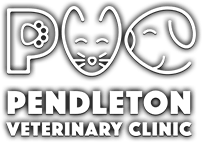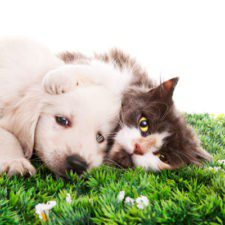Easter is just around the corner! It’s always great to celebrate the spring holiday and enjoy some warm weather after a long winter. However, just be sure to take precautions to keep your beloved pet safe. This can be a dangerous time of year for our furry pals! Here, an Anderson, IN vet offers some Easter pet care tips.
Choose Safe Foods
Food is a big part of many Easter traditions. However, don’t let your pet get their paws on any Easter bunnies! Chocolate is highly toxic to our four-legged friends. Plus, many chocolate treats contain things like nuts, raisins, or xylitol, which are toxic in and of themselves. Hard candies and candy wrappers can also be choking hazards. If you’re having a feast, you’ll also need to make sure that your pet doesn’t eat anything that isn’t safe for them. Some foods to avoid are garlic, onions, scallions, and chives; grapes, currants, and raisins; alcohol; dairy products; nuts; mushrooms; meat on the bone; raw meat, dough, or yeast; pitted fruits, especially avocado; and xylitol. Also, if you host an Easter egg hunt, make sure all the eggs get picked up. Cooked eggs spoil quickly. Unfortunately, that won’t stop Fido from eating them.
Keep Up With Preventative Care
Fleas, ticks, mosquitos, and other parasites will come out of hiding as soon as the weather warms up. You’ll also need to be aware of wild animals that are in their mating season. Even stray cats and dogs can pose a threat. Keep up with your pet’s parasite control and vaccinations!
Opt For Pet-Safe Decorations
Many popular Easter decorations are dangerous to pets. The plastic grasses you often find in Easter baskets are a serious choking hazard, and can cause severe internal damage if ingested. Plastic eggs are also a concern, as are banners, garlands, foil wrappers, and anything small or sharp.
Bouquets
Those colorful spring bouquets offer a wonderful pop of color after a long winter. However, many of those pretty flowers are toxic to our furry pals. Some of the most dangerous ones include lilies, tulips, daffodils, and bluebells. You can find a full list of safe and unsafe plants at the ASPCA website here. Many garden products, such as fertilizers and pesticides, are also unsafe.
Please contact us, your Anderson, IN vet clinic, for all of your pet’s veterinary care needs. We’re here to help!








